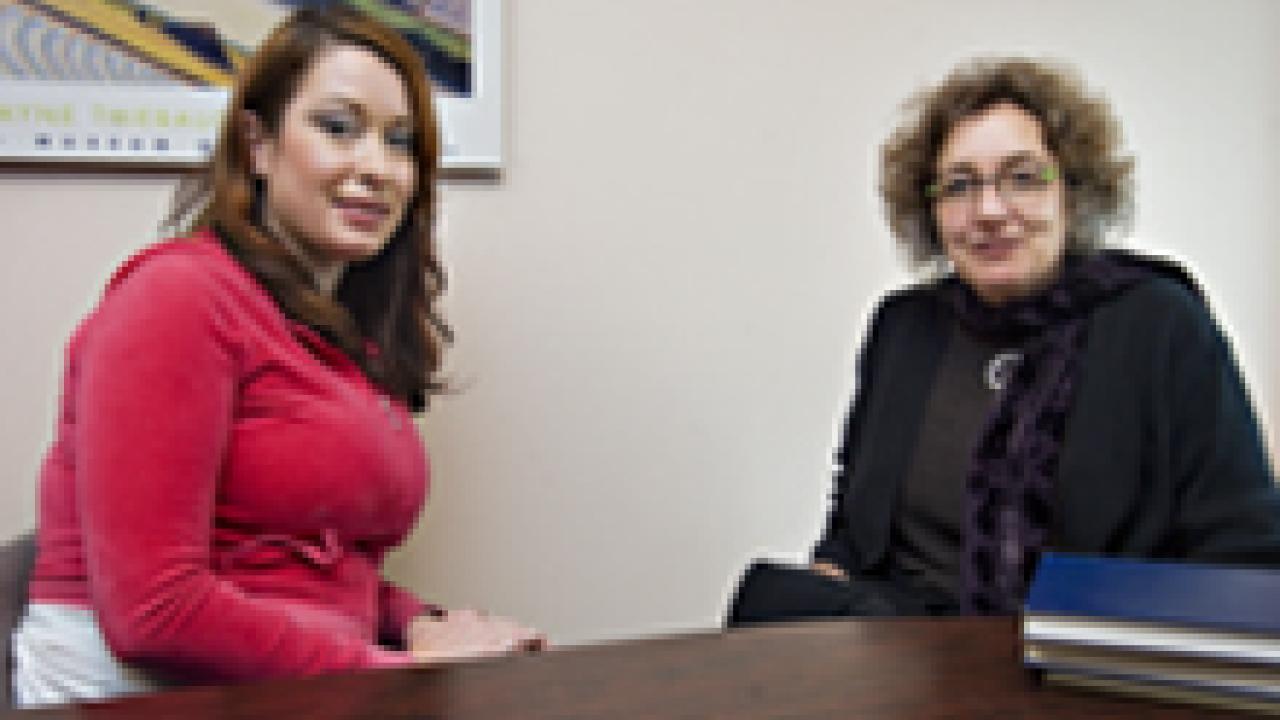Foster care was a rough experience for Marita Grant, and at one time her future looked bleak. She saw her peers from foster care living on the streets and doing drugs. Everyone dismissed her dream of a college education.
But today, the junior is thriving at UC Davis with the help of a program that offers support to former foster youths. The Guardian Scholars Program, now in its second year at UC Davis, is providing about 45 students with practical help, a social network and individual mentoring.
“It’s definitely the rock I’ve been standing on since I got here,” said Grant, who is studying political science with a minor in psychology. “When I graduate soon, hopefully, it will be because of the program, because they were here to support me and keep me going.”
UC Davis is among 30 campuses across the country to offer the Guardian Scholars Program in what is a growing effort to make higher education more attainable for former foster youths — many of whom lack role models, encouragement and financial resources for college-going.
Research by Casey Family Programs, a Seattle-based foundation for children and families, found only about 2 percent of young people from foster care obtained bachelor’s degrees, compared with 24 percent of adults in the general population.
Investment in young people
The Guardian Scholars program had its beginnings at California State University-Fullerton in 1998. At UC Davis, the program is housed under the Educational Opportunity Program in Advising Services. Major funding has included a $12,500 planning grant from the Walter S. Johnson Foundation and a $55,000 matching grant in each of three years from the Stuart Foundation.
Open to students admitted with freshman or transfer status, the UC Davis program celebrated its first baccalaureate graduates last June.
The program is helping Grant, 20, persist in her efforts to earn a law degree and become an advocate for foster youths. Born in Sierra Leone, she came to the United States at age 12, entered foster care at 14 and bounced among several foster and group homes in California.
Grant was determined to escape the fate of her peers and one day have her own home. She used a California Chafee Grant, which provides $5,000 a year for former foster youths pursuing education, to study for two years at CSU-Los Angeles. She transferred to UC Davis in September.
Brandy Jenkins of Fairfield, a second-generation foster child, is also a Guardian Scholar at UC Davis. She entered the system at age 11 and dropped out of high school by 9th grade. Jenkins went on to complete high school and, as a mother of four, worked full time while earning an Associate of Arts at Napa Valley Community College. The 28-year-old transferred to UC Davis last fall.
“I didn’t know what a university looked like, and I didn’t know what to expect when I got here,” said the sociology major. “I’m totally big on this program,” Jenkins added. “This has been the first time I’ve actually had a welcoming environment.”
For Jenkins, who has struggled to trust people in authority, the program’s mentoring relationship is “an extremely powerful experience.” She and Diane Wolf, a professor of sociology and director of the Jewish Studies Program, meet weekly and communicate frequently by telephone and e-mail.
“Coming from being a former foster youth, I gave up on myself because no one expected anything of me,” Jenkins said. “Diane expects me to do my best, and — with her expectation — my best keeps getting better.”
Wolf is one of 32 faculty and staff volunteers who have taken a four-hour training program to serve as mentors. “Meeting someone who’s been through something unimaginable but is still on her feet,” Wolf said, “it’s humbling and inspiring.”
The connection between Jenkins and Wolf also grew through one of the professor’s books, Beyond Anne Frank: Hidden Children and Postwar Families in Holland. The book tells the tumultuous stories of Jewish children hidden with non-Jewish families during the Nazi occupation of Holland and draws comparisons to the foster care system.
“It brings up all kinds of questions about family,” Wolf said of her book, “and that family doesn’t have to be biological to be meaningful.”
‘They have so much to deal with’
Indeed, the Guardian Scholars support each other. “I’ve been able to link up with other Guardian Scholars to study for the day,” Grant said, “or just for someone to lean on.”
As most students anticipated returning home for the winter break, Grant and other members of the student advisory committee worked with the program to make sure scholars had a place to stay when their halls closed for the break. “They come in and they have so much to deal with,” Grant said.
The program also helps scholars navigate the campus and connect with other resources. The program has a staff and a peer adviser, and Director Arnette Bates said it maintains a network of liaisons with other campus units. Grant found a job with the Student Disability Center, and she is conducting political science research through the MURALS program, which encourages disadvantaged students to pursue graduate studies.
At law school, Grant aims to focus on family and children’s law so she can help foster children. “I want to be able to get them adopted or put them in foster homes that aren’t going to be so negative.”
Jenkins hopes to study human rights at the UC Davis School of Law. “Not only do I want to motivate foster kids,” she said, “but I plan to be a source of motivation and inspiration to all people so that we may know the power of never giving up and never giving in, despite the opposition of one’s background or altitude of one’s dreams.”
Media Resources
Clifton B. Parker, Dateline, (530) 752-1932, cparker@ucdavis.edu
